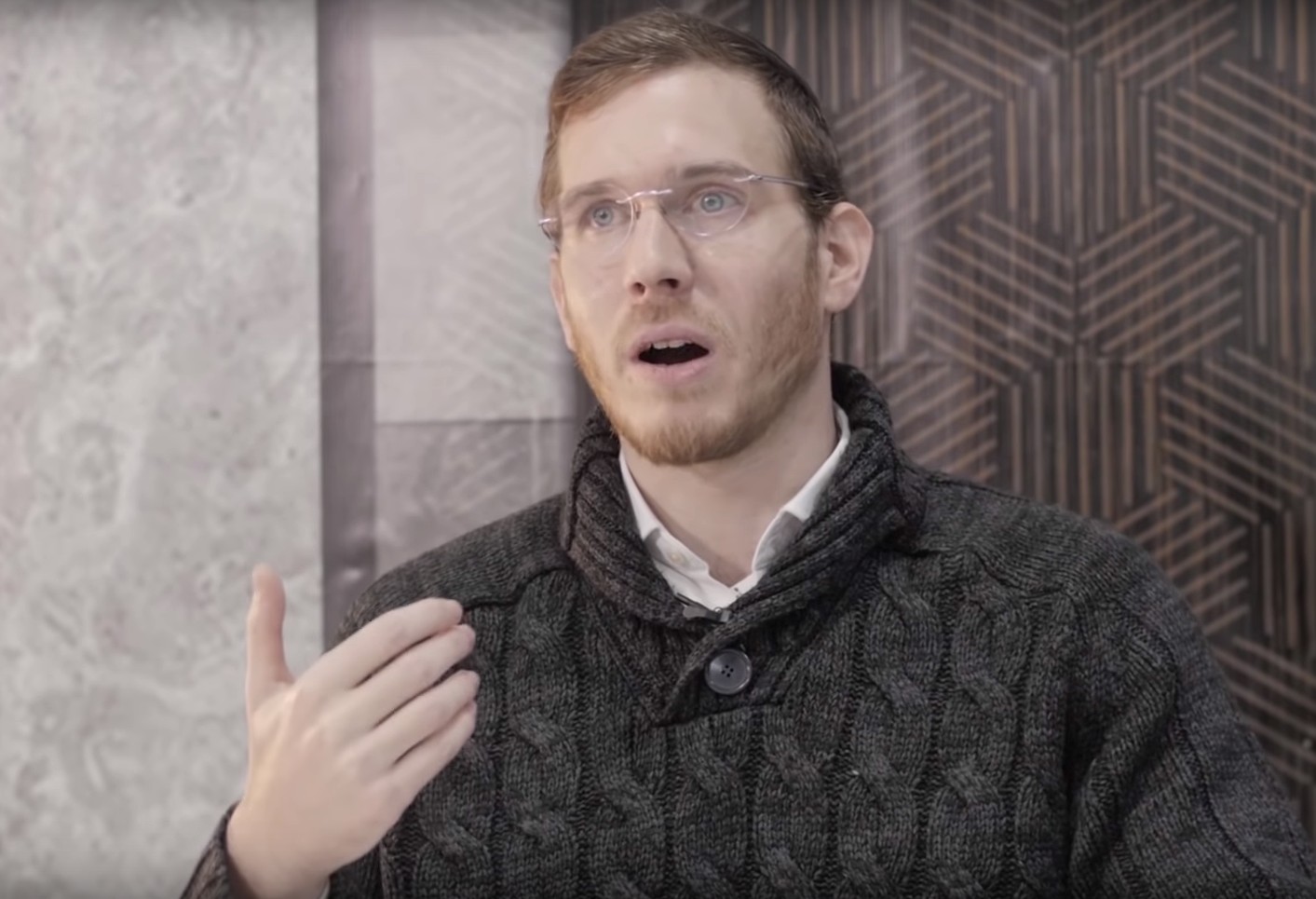We shall begin by analyzing the question of whether, by sheer force of willpower and a relentless pursuit of our desired goal, we truly possess the power to cause anything to happen?
At first glance, any rational being can realize that a great part of life’s maturity is achieved through understanding the precise opposite. You want something? That’s fine and dandy. But no one can promise you that you’ll get what you want.
Recently, however, a new theory has taken center stage in the global media, accompanied by a great deal of fanfare. Called “The Secret”, its creators maintain that its premise is gleaned from Torah sources. According to this theory, if a person wants something — truly wants it — nothing can stand in his path, and he will be able, without a shadow of a doubt, to obtain all his heart desires! The core element of a man’s work is to genuinely want. Genuine desire turns man into a kind of magnet that draws the fulfilment of all his hopes and dreams.
It goes without saying that this theory is attractive and tantalizing. If, indeed, it works — it would be a pity not to make use of it. The question is whether it holds up to the Torah’s truth, and whether it is accurate in its prediction — how great is the power of man’s will?
We shall examine this important topic in the following chapter, and differentiate between two separate elements. In part one we shall investigate the above-mentioned theory — is man’s spiritual prowess so strong that everything depends on his will? There is an old Jewish saying: “Where there’s a will, there’s a way!” and this seems to be the essence of the “Secret” they are referring to.
In Part Two we shall examine man’s spiritual prowess from a Jewish perspective. For evidently, man has been granted incredible strengths that are non-existent in other creatures.
Let us embark, therefore, on an exciting adventure, checking out this thesis in depth.
Think Good — All Will Be Good
Let us begin with a look at the main principles that hold The Secret theory together. What great secret, according to its proponents, has been revealed here to all of humanity?
The theory’s promulgators claim its driving principle is a belief in the strength of willpower — a belief that sheer belief has the power to make all our dreams come true. How is this achieved?
Very simply. They maintain that as long as we truly, deeply, sincerely desire something — the universe will adapt itself to our willpower and we will end up getting everything we want. This happens because when a person wants something and thinks about it all the time, he becomes, ostensibly, a sort of “Magnet”, creating a kind of gravity around his being that attracts what he wants, and the universe reacts in kind.
The problem is, according to the theory’s proponents, that we have grown used to not asking. And when we do ask — we ask in an inappropriate manner, without really believing that our wish is about to be realized. They continue to claim that by getting involved in negativity, even when it is done in order to fight and eradicate it, empowers and increases the force of negativity in the world. Thus, they claim, increase the amount of light in your will, in your imagination and in your thoughts and by doing so you will draw down a multitude of blessings and success for you and for all of humanity.
Until you try it out — they say — you would never believe how easy and simple it is to have all your wants fulfilled. Just think positive, and you will be blessed with positivity – and you will see the astonishing results for yourselves!
This, in a nutshell, is The Secret.
Anyone who has given a quick glance through the short sentences that make up this theory can already discern several concepts that are, indeed, taken from Judaism. For, ultimately, Judaism also recognizes the awesome power of our thoughts and desires.
However, any Torah scholar who hears this theory in its entirety, despite perhaps identifying with many of its underlying concepts, will have reservations. Are these reservations a direct result of the radical novelty that this theory presents, or is it because, there may truly be elements of falsehood intertwined with the innate truth?
Is this Theory Correct? Does it Always Work?
At the outset, we should present three primary questions regarding this theory:
- Does “The Secret” fit in with our belief in Hashem, or does it contradict our belief?
- Is the theory correct, and does it always yield the desired results?
- Is there a potential moral or psychological risk involved in hanging on to this kind of belief?
We shall leave the answer to the first question unresolved for now, and attend first to the last two questions.
The second question — which asks whether the theory is correct and yields consistent results — is a complex one. That is because the theory’s creators will have us believe that if we are not seeing the results we desire, it is only because we didn’t truly desire it — i.e. our willpower wasn’t strong enough. If only we had truly wanted it — if our desire had been strong and genuine — everything we wanted would come our way.
Is that so?
When I presented this question before an audience, and I asked for their opinion on the matter, the feedback was varied.
Some of them claimed that the theory is correct, and yet there are times when nothing we do can help us get what we want.
In other words: The theory is incorrect. For the people standing behind the theory maintain that it will always help — we just need to want enough to get what we desire…
Another participant said that he agrees to the concept that man presents a kind of gravitational pull, a magnet of sorts that can exert power over the universe. But when asked whether this power could be used to obtain anything and everything, he responded with: “In theory — yes… but there are exceptions to the rule, of course.”
Another participant, on the other hand, related how his own personal experience taught him how little basis the theory has in reality. He had strongly desired to succeed in a certain academic field. The desire was genuine — he felt it in the depths of his heart, and the inordinate effort he invested to achieve his goal, matched his desire. He had been absolutely convinced that he would pull it off — without a shadow of a doubt. Unfortunately, he did not succeed — and that is an understatement.
It is clear to all, therefore, that man cannot always achieve his every desire — even when he genuinely wants something very deeply. We may only consider all the terminally ill patients who so desperately wanted to live, or the business tycoons whose companies failed when they greatly wished for a better outcome.
The Inherent Risks with this Theory
Let’s progress to the next question: Is there any psychological or ethical risk in hanging on to this line of thought?
This theory is gaining widespread popularity throughout the world, after all. It seems prudent to check whether there aren’t any potentially harmful downsides to entertaining this belief. Having said that — perhaps this theory is merely a pleasant one which would be great if it were true, but if it isn’t — there is no harm done.
But the answer is that first and foremost this theory runs one clear risk. Having people believe “you can get anything you want, if you only want it hard enough’, will lead unscrupulous people who have no conscience to get their way by domineering others, with scant regard for unethical means. For haven’t we just said that if you only want something hard enough… and who is the other person to stand in their way?
Moreover, let’s consider: What happens to a person who has studied this theory, internalized its message and decided that he will — undoubtedly — win first prize in a $50 million USD sweepstakes. He invests a lot of thought, and after a doing intense inner work he purchases the lottery card, knowing without a shadow of a doubt that in two weeks’ time he is going to become a millionaire. What happens to this guy, from a psychological—emotional viewpoint when he finally discovers that he has not even one a dime?
And people can have far more significant ambitions than this. The psychological fallout upon discovery of their failed aspirations — following prolonged periods of anticipating success — can be brutal, bringing a person to the brink of emotional collapse.
Providing people with theories that give them hope and inner strength is a good thing. But, at the same time, one must consider the inherent risks and implications involved in the event that the theory doesn’t follow through on its promise.
To summarize what we have said so far, the person analyzing this theory may come away with mixed feelings of belief and confusion. On the one hand, it contains a kernel of truth. On the other hand, it is hard to ignore the feeling that despite it, there is something in its basic premise that doesn’t make sense, and may even be harmful.
Now we can now go back to the first question — what is Judaism’s outlook on this issue? Does all the hype over the unfathomable power of man’s will fit in with the Torah’s viewpoint, or does it contradict it?
If we analyze the issue through the informed lense that Chazal has provided us with, we shall be able to appreciate man’s spiritual powers in the right perspective.
Is this Theory Compatible with Belief in Hashem?
According to Torah, and even according to pure logic, man is subservient to G-d, and not G-d to mankind. When we claim that “The Universe” will provide man with whatever he desires, because man has a “gravitational pull” that serves as a magnet to fulfil all his wishes — we are essentially removing Hashem, so to speak, from our world view and replacing His Will with the power of “The Universe”, ch”v.
Moreover, even if man were to say: “Okay. You know what? We’ll give the theory a slight makeover. We’ll exchange the term Universe with G-d and decide that anything man truly desires — will be granted by G-d.” This will also be an inaccurate presentation of facts. Does a loving father grant his son everything he desires? Is it always the right course of action to fulfil all his son’s wishes?
A third-grade boy approaches his father and asks: “Daddy, do you love me?”
“Of course, I love you!”
So the boy says: “If you truly love me, allow me to play all night and all day with the game granddad bought me for my birthday… Oh! and let me play truant from school right through to the eighth grade…!”
Will a loving father agree? He’ll most certainly turn down these petty requests. He’ll do, instead, what’s right for his son’s future. He knows better than the little kid what is best for him.
If a child needs to undergo medical treatment that involves pain and discomfort, his father will take him to hospital and hold him tight throughout the procedure. He won’t relent — even if the child cries and protests. The child doesn’t always recognize what’s best for him.
In light of this — how can we presume that Hashem will grant a person anything and everything he desires? Hashem knows better than man what is ultimately in his best interests, and which things will help him achieve the purpose for which he was brought down to the world.
Many people have won first prize in grand national sweepstakes. From the day they won big — their lives were in shambles. And we still see the masses running to purchase lottery tickets, hoping for a better future. That is because truth is hidden. This world is called “Olam” — derived from the term “Heh-ah-lem” — concealment. This world conceals and hides from man’s perception the proper way to live, and our challenge lies in peeling away the layers to reveal the truth that lies within.
A third point one must pay attention to, is that a man who believes in the Torah (especially as its proponents claim that the theory is based on Torah principles…) knows that the Torah does not tell us: “And should you desire rain — you will have rain”. Instead, it tells us: “And should you listen to My commandments… I shall grant the rain of your earth.” In other words, the goodness granted to mankind by Hashem is contingent on man’s actions, not on man’s thoughts and desires.
A corrupt person who commits acts of evil, may desire all the good in the world, but he cannot expect with any certainty that goodness will come his way.
We must conclude, therefore, that a person who believes in Hashem and His Torah realizes that although the theory may contain a trace of truth, we do not believe in the principle that anything we desire can be attained by merely wanting it.
Adapted from ‘Man and His Universe’ by Rabbi Zamir Cohen. Coming to you soon in English
Commander viagra france. Cialis philippines. Vrai viagra sans ordonnance. www.cialispascherfr24.com Combien coute le viagra ou le cialis chez un walgreens.





